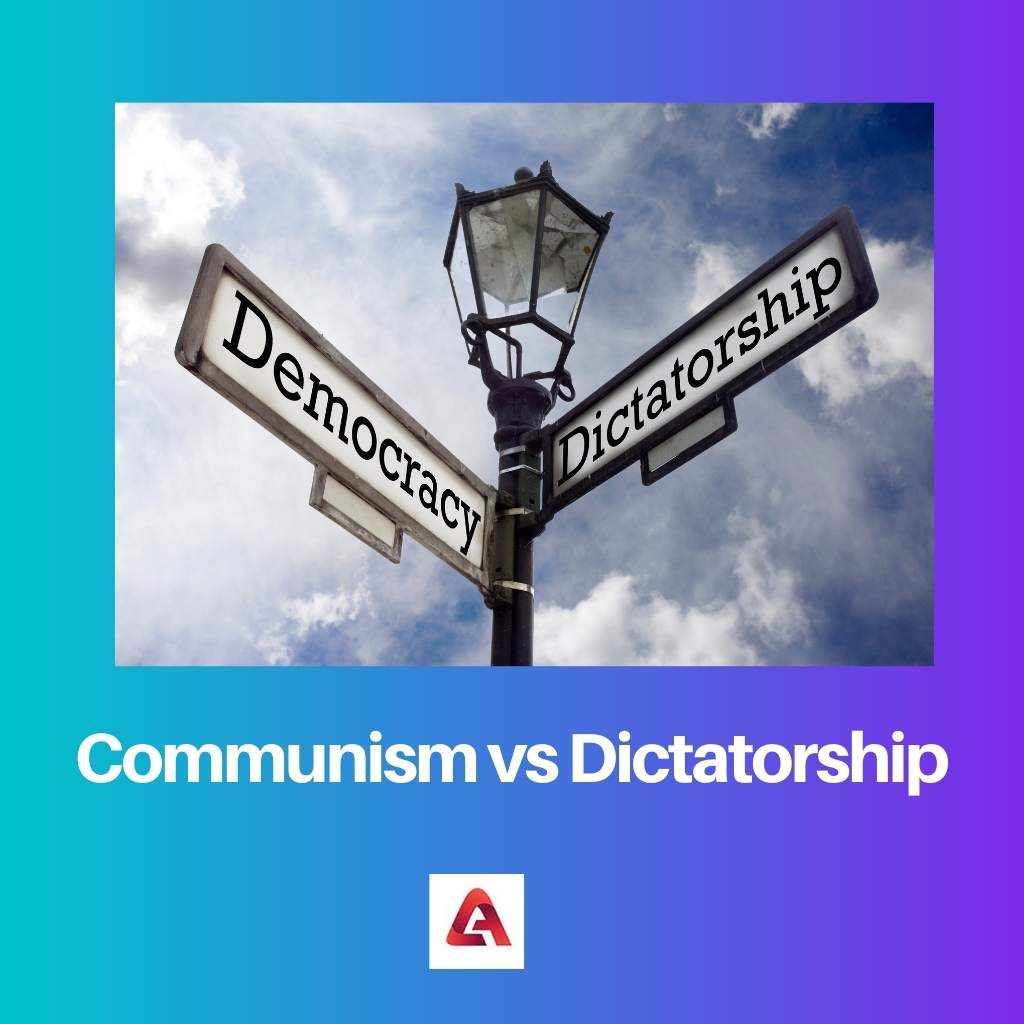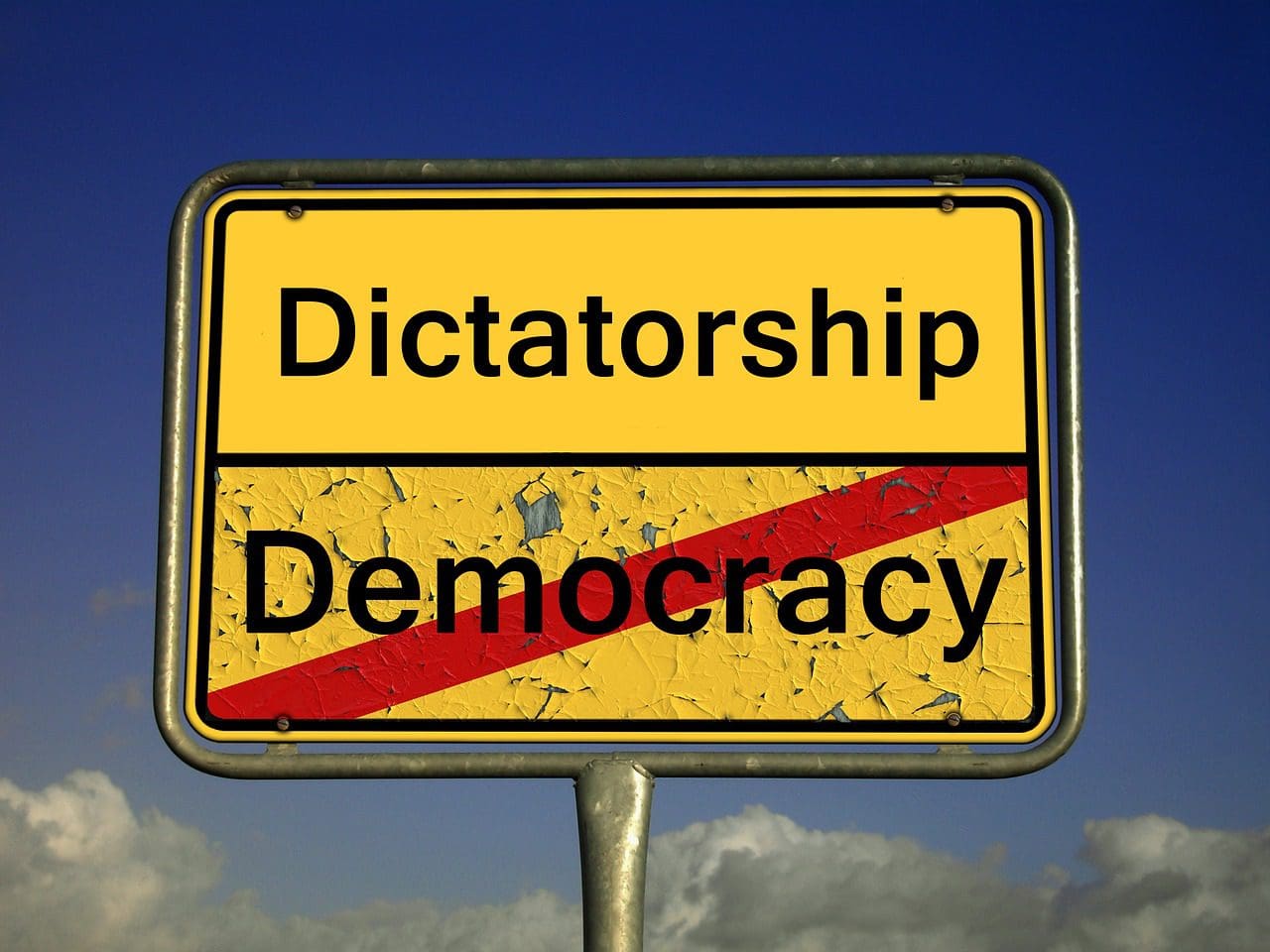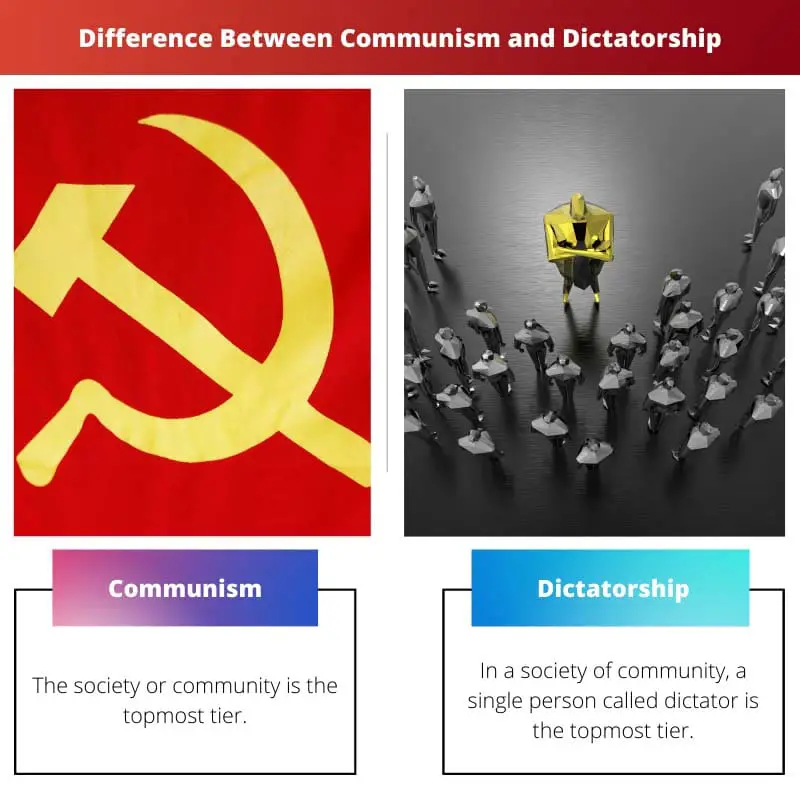Around the world, different countries experience their respective different type of government. Many countries experience a communist government, anarchy, or monarchy type of government, like India, which experiences a democratic type of government.
Key Takeaways
- Communism is a political ideology aiming to create a classless society where resources are shared equally. At the same time, Dictatorship is a form of government where one person has complete control over the state.
- Communism advocates for the abolition of private property and the establishment of a socialist state, while Dictatorship can be established through various means, including force, fraud, or popular support.
- While Communism is a political ideology, Dictatorship is a form of government that can be applied to any ideology or system.
Communism vs Dictatorship
Communism and dictatorship are two distinct political ideologies. Communism advocates for a classless society where resources are shared and the government controls the means of production. In contrast, a dictatorship is a form of government where absolute power is concentrated in the hands of a single individual or a small group with limited political freedom.

In a Communist government, the system is classless, which means they provide equality among everyone. There was no discrimination among people based on their wealth, skin colour, education, income, etc.
The rules and regulations for the country are governed by them, making it governed by the state machinery. The belief in a dictatorship government is a single person or ownership.
Comparison Table
| Parameters of Comparison | Communism | Dictatorship |
|---|---|---|
| Definition | The society or community is the topmost tier. | In a society of community, a single person called dictator is the topmost tier. |
| Powerful | A community or society is restricted by the powers. | A dictator is the most powerful. |
| Equality | Everyone is considered equal. | No one is considered equal. |
| Belief | Common ownership | Single ownership |
| Profit | It is shared | It is shared only by one. |
| Rules | Ruled by a community as the power is distributed among many people | Ruled by a single person and not shared within many people |
What is Communism?
Communism is a government in which a society, group, or community rules. The ideology of a communist government was social, economic, philosophically, etc., based on co-own property and ideas that stood against capitalism or liberal democracy.
The word came into existence in the 18th century, which meant sharing benefits, profit, properties, labour, work, etc.
- The sharing of property, work, profits, etc., makes it a classless society where they treat everyone equally without discriminating against them based on income, wealth, education, culture, etc.
- The second key point is the communist government ideology was developed by two individuals named Karl Marx and Friedrich Engels.
The rest of the country’s citizens are believed to be a part of a classless society that provides or distributes their services as required. The best example of the communist government at present is China, North Korea, Vietnam, etc.
The three main reasons behind the failure of the communist government are mentioned below –
- The lack of interest among the people to produce enough profit.
- The lack of proper centralized planning for development.

What is Dictatorship?
Dictatorship is a government in which a single person is authorized or supreme over everyone else and thus requires a piece of state machinery to work. Forceful acts majorly form the dictatorship government.
The well-known word dictator originated from the word Latin language ‘dictator’, which in the Roman language meant a single supreme authority that rules over the country.
In a dictatorship government, the dictator is cruel, and it is never necessary that the dictator of a country is going to serve the people with their needs. The most famous example of a dictatorship government is Adolf Hitler, who took over Germany with an act called the “Enable Act”.

Main Differences Between Communism and Dictatorship
- Communism type of government is one where the ruling power is distributed among many people, while Dictatorship is a type of government where a single person in a community or a society is the topmost tier.
- In a communist government, the community or a society that rules have limited access to their powers, while in a dictatorship government, a single person is authorized and most powerful.






